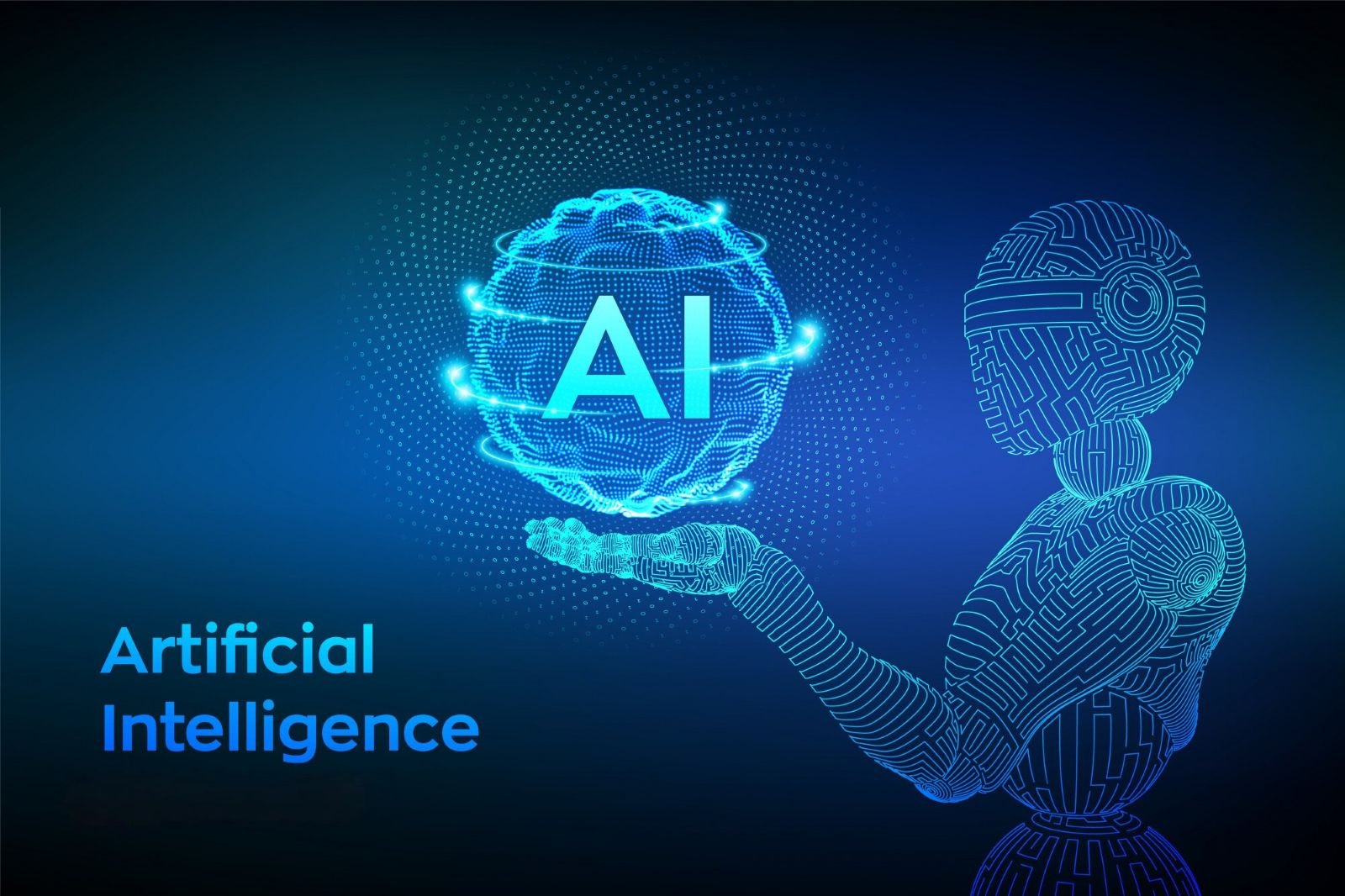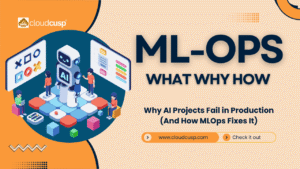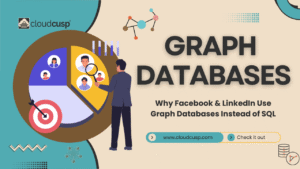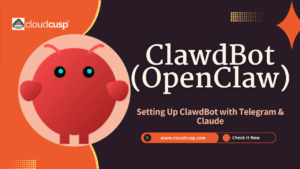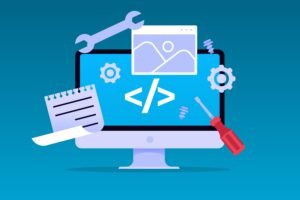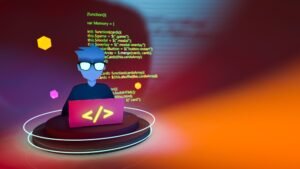Imagine waking up in 2025. Your day begins with an AI assistant that knows not just your schedule but also understands your mood. It suggests a calming playlist if you’re stressed or offers a motivational podcast to kickstart your day. Your commute is seamless, thanks to autonomous vehicles that have become a norm, and your workday feels productive with AI-enhanced tools that bring your ideas to life.
This isn’t a far-fetched vision. It’s the reality AI is crafting as it weaves into every aspect of our lives. From industries to personal routines, AI is transforming the world, and 2025 will mark a major milestone in this journey. Let’s explore how AI is reshaping our future through real-world examples and relatable scenarios.
Table of Contents
AI in Industries: Beyond Automation to Innovation
AI is no longer limited to automating repetitive tasks. It’s becoming the driving force of innovation across industries.
Retail: Personalizing Shopping Experiences
- Before AI: Stores guessed customer preferences based on generic trends.
- Now: AI-powered tools analyze purchase history and behavior to suggest personalized products.
- Example: A fashion app that recommends outfits based on your style and upcoming weather.
Healthcare: Diagnosing and Treating Smarter
- Before AI: Diagnoses relied heavily on limited human interpretation.
- Now: AI detects diseases like cancer earlier by analyzing medical images with unmatched precision.
- Example: AI tools flag abnormalities in X-rays within seconds, aiding faster treatment decisions.
Education: Learning Tailored to You
- Before AI: One-size-fits-all teaching methods.
- Now: Adaptive learning platforms tailor lessons to a student’s pace and style.
- Example: AI tutors that adjust difficulty levels based on how well you’re grasping a topic.
Key Takeaway: AI is turning industries from reactive to proactive, delivering tailored solutions and enhancing innovation.
Redefining Jobs: Co-workers, Not Replacements
A common fear is that AI will take jobs. But in reality, it’s more about creating new roles and collaborating with humans.
AI as a Creative Partner
- AI tools like DALL-E and ChatGPT are helping artists, writers, and designers brainstorm ideas.
- Story: A writer uses AI to generate plot twists, speeding up their creative process.
Customer Service Transformation
- AI chatbots handle repetitive queries, freeing up humans for complex customer concerns.
- Example: A tech support team that uses AI to quickly diagnose issues, allowing agents to focus on customer satisfaction.
Enhancing Manual Work
- Robots powered by AI are aiding workers in dangerous or physically demanding jobs.
- Example: AI-powered drones inspecting high-rise buildings, ensuring worker safety.
Key Takeaway: Instead of replacing people, AI is becoming a co-worker that amplifies human potential.
Daily Life Revolutionized
AI isn’t just shaping industries; it’s also transforming how we live every day.
Smart Homes: Convenience at Your Fingertips
- AI-powered devices like smart thermostats and lighting systems adapt to your preferences.
- Example: Lights dim automatically when you start a movie night.
Health and Wellness
- Wearable devices with AI track your health metrics and offer actionable insights.
- Example: A fitness band that warns you of irregular heart activity and suggests seeing a doctor.
AI for Mental Health
- AI chatbots offer round-the-clock mental health support, providing resources and empathy.
- Example: Apps like Woebot helping people manage anxiety through AI-guided conversations.
Key Takeaway: AI is becoming the invisible helper in our daily routines, making life easier and more connected.
The Ethical and Social Challenges
With great power comes great responsibility, and AI brings challenges that society must address.
| Challenge | Explanation |
|---|---|
| Bias in AI | AI can reflect societal biases if trained on skewed data. |
| Privacy Concerns | Personal data usage by AI raises significant privacy issues. |
| Job Displacement Fear | While AI creates opportunities, it also disrupts traditional job markets. |
Ensuring Ethical AI
- Communities and organizations are pushing for transparent AI systems that prioritize fairness and inclusivity.
- Governments are drafting policies to regulate AI usage responsibly.
Key Takeaway: Tackling these challenges is essential to ensure AI benefits everyone, not just a select few.
Looking Ahead: A Vision for 2025 and Beyond
What does the future hold as AI evolves? Let’s hear from different perspectives:
The Optimist
AI will solve global challenges like climate change by optimizing energy use and reducing waste.
The Realist
AI will bring progress, but we need to address issues like bias and data security proactively.
The Dreamer
Imagine a world where AI creates art, music, and even helps humanity explore distant planets.
Key Takeaway: The future of AI depends on how we balance innovation with responsibility.
Resolution: A World in Partnership
As we stand on the threshold of 2024, it’s clear that AI is more than just a tool. It’s a partner in shaping our world. From solving everyday problems to addressing global challenges, AI’s potential is limitless. However, its impact will depend on the choices we make today.
The question isn’t whether AI will shape the future—it already is. The real question is: How will we shape AI? Let’s choose wisely, ensuring it becomes a force for good in the story of humanity.
FAQs
How does AI understand emotions or moods?
AI uses data from voice tone, facial expressions, and text patterns to infer emotions. However, its accuracy varies and depends on training data and context.
Which industries will AI impact the most by 2025?
AI is expected to have the largest impact on healthcare, retail, finance, education, and transportation, with innovations like personalized services and automated systems.
Will AI take over jobs completely?
While AI will automate certain tasks, it is more likely to create new roles that require collaboration with AI systems, such as AI maintenance or ethical oversight positions.
What are the main ethical challenges with AI?
Key concerns include bias in decision-making, privacy violations, and the risk of deepening inequalities if access to AI tools is uneven.
How can individuals ensure responsible AI development?
People can advocate for transparency, support ethical AI policies, and educate themselves about how AI systems work to participate in informed discussions.
